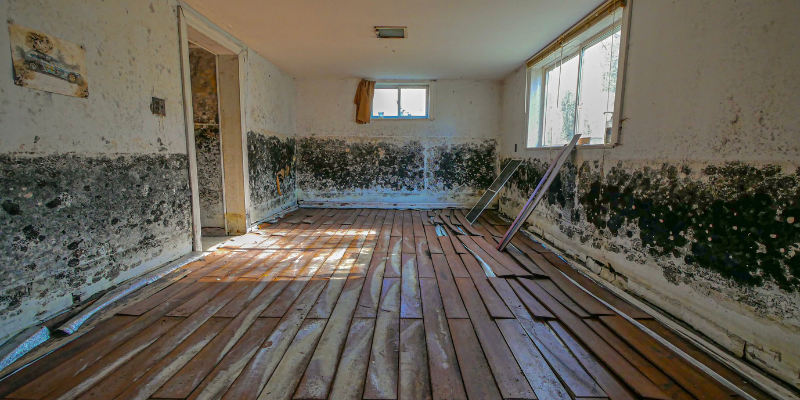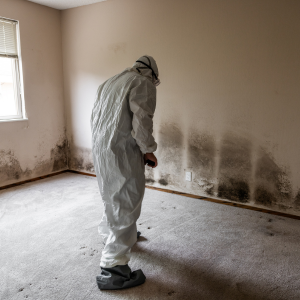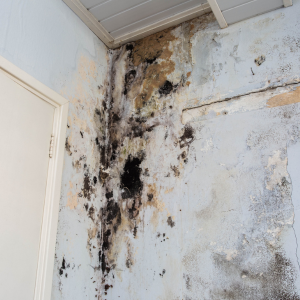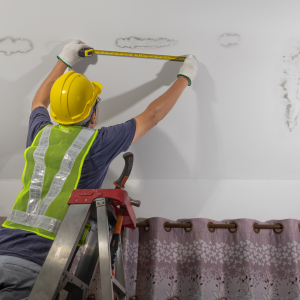
Follow professional advice on treatment and price to confidently sell your house in Cross Lanes and surrounding cities in West Virginia. Use the Henderson Homebuyers knowledge to guarantee a seamless movement in the West Virginia real estate market.
Understanding West Virginia’s Mold Disclosure Laws and Your Legal Obligations
What are West Virginia’s specific disclosure laws regarding mold in home sales? Are there exceptions?
In West Virginia, sellers must follow rules about how to disclose information about a property. These rules say that sellers have to tell people who are interested in buying their home about any mold issues they know about. This prevents health risks and keeps everyone safe. Sellers must also fill out forms that ask about any mold that is present or has been there in the past.
There are some exceptions, like when a property is sold “as-is” or through foreclosure. However, sellers should still get legal advice to make sure they understand these exceptions correctly. Honesty about the property’s condition is always important.
What could happen if I don’t tell anyone about known mold problems? How are these punishments carried out?
In West Virginia, not telling the police about known mold problems can get you into much trouble. If a buyer finds mold that wasn’t revealed, they could sue the seller and be punished with fines or having to pay for mold removal. A court could also tell the seller to make up for the property’s lower value with money.
These penalties are enforced through legal action initiated by the buyer. This shows why it’s crucial for sellers to be honest and thorough in disclosing issues during property sales. Sellers should seek legal advice to know their rights and responsibilities.
Effectively Disclosing Mold Issues to Potential Buyers in West Virginia
Should I proactively provide a mold inspection report to prospective buyers? When is this advisable?

Giving a mold inspection report to potential buyers can build trust. Consider sharing this report when:
- Mold Was Previously Detected: If you know about mold issues, showing the inspection report shows honesty and responsibility.
- Buyer’s Legal Concerns: Buyers might have legal questions about mold; sharing the report helps meet these concerns.
- Real Estate Contract Requirements: Understand the legal needs under West Virginia’s real estate laws for disclosures.
Sharing the mold inspection report early can prevent disputes and smooth the selling process.
How much detail should I include regarding mold in my West Virginia property disclosure statement? What’s too much/too little?
When writing a property disclosure statement, aim for balance. Include:
- Important: Talk about mold issues and briefly describe what was done to fix them.
- Legal Requirements: Follow West Virginia’s transparency laws. Give buyers enough information to be informed but not too much.
- Problems and flaws: Make a list of any current issues or places that have had mold in the past.
It is advisable to refrain from employing an excessive amount of technical jargon that may serve as an intimidating factor for potential purchasers. Consult with an attorney to determine the appropriate level of detail.
How can I craft transparent and legally sound disclosures that address buyer concerns without unduly alarming them? What language should I use?
To write clear and legally safe disclosures, follow these tips:
- Clear Language: Use simple, direct words to explain mold problems and what was done to fix them.
- Concentrate on Transparency: Provide a detailed account of the measures taken to combat mildew, emphasizing professional evaluations and procedures.
- Common Issues: Consider potential inquiries that purchasers may have and provide direct responses in the disclosure statement.
Make sure your disclosure meets West Virginia’s real estate laws. If you are unsure, consult a lawyer to create a statement that provides the needed information while maintaining buyer confidence.
Pricing Your West Virginia Property Competitively Despite Mold Issues
How can I accurately price my property to reflect the cost of potential mold remediation and still be competitive?

To set a competitive price for your property with mold issues, consider these steps:
- Get a professional mold inspection: Find out how bad the mold issue is.
- Figure out how much the cleanup will cost: To find out how much it might cost, get quotes from licensed experts.
- Do a market analysis: By looking at recent sales of similar moldy homes in West Virginia.
- Adjust for Mold Removal Costs: To find a fair listing price, take the market value of your home and subtract the expected cost of mold removal.
- Estimation: Before you put your house on the market, this can help you set a fair price.
This strategy helps you keep your listing appealing, even with mold problems, by balancing price against necessary repairs.
Should I consider offering a discount or credit to offset buyers’ concerns about mold? If so, how much is appropriate?
Providing a discount or credit might ease buyers’ worries about mold. Here’s what to keep in mind:
- Figure out how much mold removal will cost: Beginning with this amount, you can get a refund or credit.
- Think of Buyer’s Power in a Negotiation: Even a small discount might work in a busy store. If there are a lot of buyers, the price might need to go down even more.
- Discounts that usually happen: Depending on how bad the mold is, a fair deal is between 5% and 10% of the sale price.
Offering credit allows buyers the freedom to handle remediation after buying, which can be attractive.
What comparable sales in West Virginia (with similar mold issues) can I use to justify my pricing strategy? How do I find and analyze this data?
To find comparable sales:
- Utilize Real Estate Listings Platforms: Use sites like Zillow or Realtor.com to view sold homes in your area.
- Consult Real Estate Professionals: Local agents can provide access to the MLS for detailed information on similar sales.
- Review County Property Records: Public records offer insights into past sales prices.
When analyzing data:
- Pay attention to homes that have had mold problems in the past: This will keep comparisons useful.
- Think about sale dates: Recent sales show how the market is doing right now.
- Adjust for Other Variables: Take into account differences in features, sizes, and locations.
Using this data, you can develop a solid pricing strategy that accounts for mold challenges.
Minimizing Mold Growth and Ensuring a Smooth Closing Process in West Virginia
What preventative measures can I take to avoid mold growth between inspection and closing in West Virginia?

Preventing mold growth from the time of home inspection until closing is important. Here are some simple steps you can follow:
- Regular Inspections: Set up inspections to spot moisture early.
- Fix Leaks: Repair plumbing leaks quickly to stop water buildup.
- Proper Drainage: Make sure gutters direct water away from your property.
- Ventilation: Use fans in kitchens and bathrooms to lower humidity.
These actions help keep your property safe from mold, especially in West Virginia’s humid climate.
How can I maintain proper ventilation, humidity, and temperature control to minimize mold risk during the closing period?
Keeping the right indoor conditions helps reduce mold risk:
- Ventilation: Open windows when you can and use fans for air circulation.
- Humidity Control: Use dehumidifiers to keep humidity below 60%.
- Temperature Management: Keep a steady temperature to avoid condensation.
By controlling these factors, you keep the property ready and mold-free for closing.
Should I consider hiring a professional property manager to oversee maintenance and prevent mold issues until closing? What are the associated costs and benefits?
Hiring a property manager might help with mold issues:
- Expert Oversight: They can spot potential problems early.
- Routine Maintenance: Regular checks and repairs keep issues at bay.
- Peace of Mind: A well-kept property means less stress at closing.
While management fees are involved, protecting your investment may outweigh these costs. This can help ensure a smooth transaction in West Virginia.
What are the common challenges that arise with mold issues during the closing process in West Virginia, and how can I avoid them?
Mold issues can complicate real estate deals in West Virginia:
- Buyer Concerns: Buyers might back out or demand lower prices if mold is found.
- Legal Implications: Not disclosing mold can cause legal trouble.
- Delays in Closing: Mold cleanup can push back the closing date.
To avoid these problems, do thorough inspections and fix issues fast. By taking action early, buyers and sellers can have a smoother closing process.
For more tips on property management, contact us at Henderson Homebuyers.
Finding the Right Real Estate Professionals for Selling a Mold-Affected Home in West Virginia
What specific qualities and experience should I seek in a West Virginia real estate professional regarding mold disclosures and sales?
When selling a mold-affected home in West Virginia, finding the right real estate professional is important. Here are some key qualities to look for:
- Experience with Mold: Choose agents who know about mold issues and understand the disclosure rules in West Virginia.
- Legal Knowledge: They should be familiar with legal aspects, like mold disclosure regulations, to protect you during the sale.
- Communication Skills: Clear communication is necessary to share information with potential buyers.
- Expertise in Transactions: Look for a track record of successful sales in similar situations.
How can I verify the expertise and reputation of a real estate professional specializing in West Virginia mold-related property sales?
To check an agent’s expertise and reputation, take these actions:
- Review Credentials: Look at their real estate license and any mold-related certifications.
- Contact Past Clients: Talk to former clients about their experiences with the agent.
- Verify Online Presence: Read online reviews and ratings on real estate websites.
- Ask for Documentation: Request proof of their success in mold-related sales, such as case studies or testimonials.
Choosing the right agent makes the sales process smoother, even when dealing with mold problems in West Virginia homes.
FAQs:
How can I sell my house in West Virginia if it has mold issues?
Selling a house with mold requires honesty. As real estate laws usually require, you should disclose mold issues to potential buyers. It’s a good idea to hire a mold expert to check and possibly fix the problem before listing the house. A clear home condition report can make selling your house faster.
What steps are needed to get rid of mold in West Virginia homes?
To get rid of mold, you have to find its sources, contain the area, remove any damaged materials, clean and dry the surfaces, and then restore the area. If you want the job to be done right, hire a professional mold removal service in West Virginia.
Are there specific regulations for selling a moldy house in West Virginia?
Yes, in West Virginia, you must disclose known mold issues according to real estate laws. Sellers need to provide complete details in a disclosure statement. Consulting a real estate attorney can help ensure compliance with state regulations.
How might mold affect the value of a house in West Virginia when it comes time to sell?
Mold can lower the value of a home because it is bad for your health and costs a lot to fix. Mold could scare buyers away or make them give less. Taking care of mold problems upfront or giving cash incentives can help the sale go more smoothly.
How does the presence of mold change home surveys and appraisals?
Mold can be a major issue during an appraisal or inspection, potentially decreasing the home’s value and affecting loan approval. If inspectors find mold, it might lead to renegotiations or sales falling through, so fixing these issues early is wise.
What are some tips for selling homes with mold in West Virginia’s housing market?
First, ensure thorough mold remediation. Be open about past problems and repairs made. Consider providing warranties or certifications from remediation companies. Explain any prevention measures taken to avoid future mold growth, as this can reassure buyers.
Key Insights
- Selling a house with mold in West Virginia involves knowing local rules and how mold might affect your home’s value.
- An easy-to-follow guide on mold removal can help get your home ready for sale and meet all contract terms.
- Mold can complicate real estate deals. Sellers should learn about federal and state laws.
- Fix mold issues early to ensure a smooth sale and prevent deals from falling through.
- Cash home buyers in West Virginia must know about mold growth and health risks, affecting price negotiations.
- West Virginia homes with mold have unique challenges; it’s important to be honest with buyers about mold issues.
- To disclose mold problems correctly, talk to a real estate attorney familiar with West Virginia laws.
- Costs for fixing mold vary. Sellers may not have to pay these costs in some cases.
- Selling a moldy house may mean lowering the price or offering incentives to attract buyers.
- Proper mold removal and home improvements can make a home more appealing and potentially raise its value.
- The climate in West Virginia can worsen mold problems; keep HVAC systems working well to stop mold growth.
- Know HOA guidelines and bank policies on selling homes with mold for a successful sale.
- Regularly checking and fixing defects can keep the home in good shape and attractive.
- DIY solutions may provide short-term relief for mold issues, but professional help is often best.
- Use a checklist reviewed by experts to prepare your house for sale and ensure you don’t miss anything.
- Knowing how infestations and mold affect West Virginia’s real estate helps make smart selling choices.
- Consider possible legal issues and keep buyers happy by being open about mold when selling.
- Buyers want honesty; full disclosure builds trust and confidence in the sale.
- Learn about common mold issues in West Virginia homes so you can fix them before listing your property.
- A clear table of contents in any guide or report ensures all key topics about selling a house with mold are covered.
- Realtor advice is very helpful for handling the challenges of selling property with mold in West Virginia.
- Communicate well, like through a newsletter or emails, to keep interested buyers informed and engaged in the process.
Need to sell your home fast and hassle-free? Henderson Homebuyers offers fair cash deals and handles all the details. Call (304) 672-2666 for a no-obligation offer today!
![companies that buy houses [market_city]](https://image-cdn.carrot.com/uploads/sites/80602/2024/12/Company-That-Buys-Houses-1920x800.webp)
